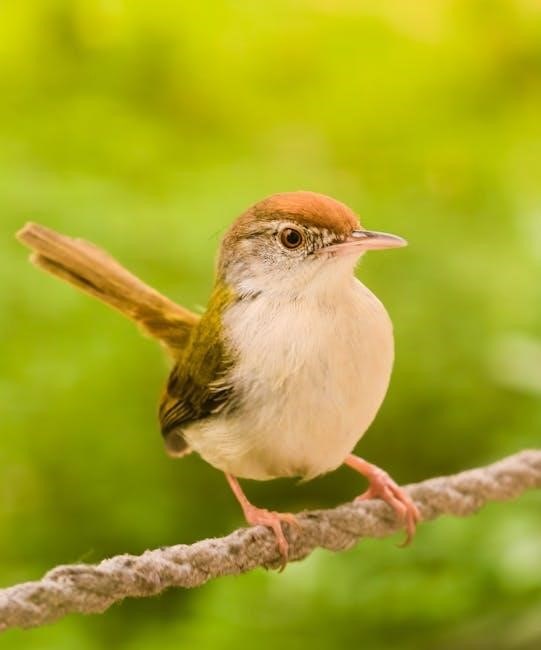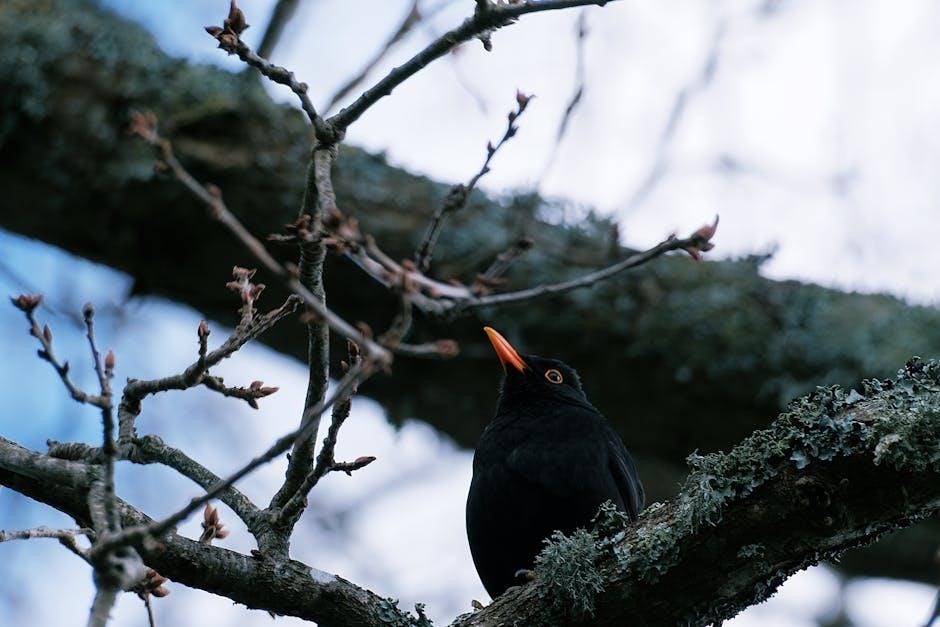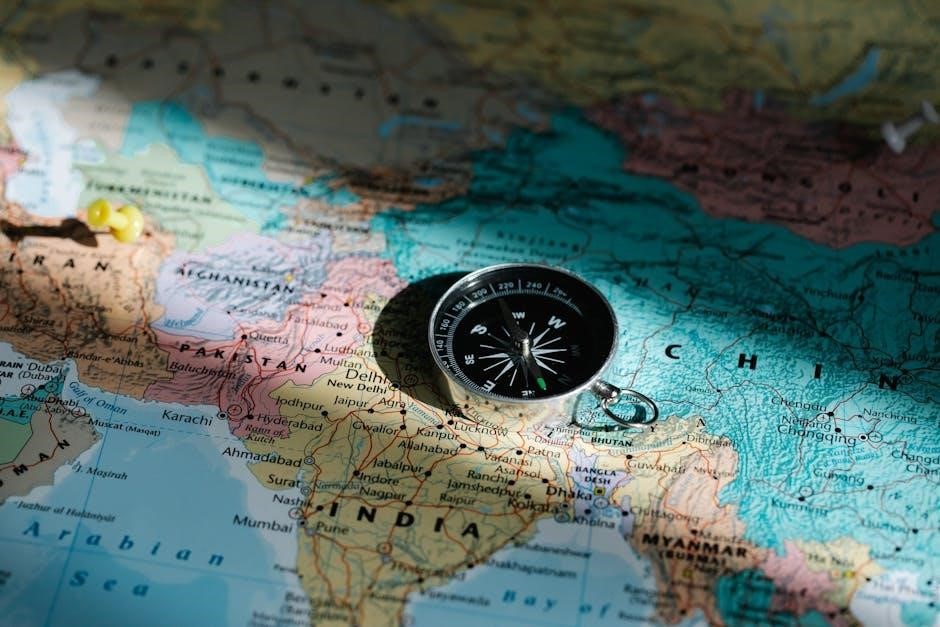Mossback Guides are experts in wilderness survival, navigation, and outdoor activities, offering invaluable insights for adventurers and nature enthusiasts alike, ensuring safe and memorable experiences.
What Are Mossback Guides?
Mossback Guides are seasoned outdoor experts specializing in wilderness survival, navigation, and traditional outdoor skills. They provide comprehensive guidance for adventurers, ensuring safe and enriching experiences in nature. Drawing from historical practices, these guides emphasize sustainable interactions with the environment, promoting conservation and respect for natural ecosystems. Their expertise spans fishing, hiking, and survival techniques, making them invaluable resources for both beginners and experienced explorers. Mossback Guides also play a role in educating individuals about environmental stewardship, fostering a deeper connection with the outdoors. Their knowledge and passion for nature make them indispensable in modern outdoor adventures and conservation efforts;
Importance of Mossback Guides in Outdoor Activities
Mossback Guides are crucial for ensuring safety and enhancing the quality of outdoor experiences. Their deep knowledge of wilderness survival, navigation, and environmental conservation helps adventurers explore safely while minimizing ecological impact. By sharing traditional skills, they connect people with nature, fostering appreciation and respect for the environment. Mossback Guides also play a key role in promoting sustainable practices, such as responsible camping and fishing, which help preserve natural habitats. Their expertise is invaluable for both novices and experienced explorers, making outdoor activities more accessible and enjoyable. This ensures that future generations can continue to benefit from the beauty and bounty of the wilderness.

History and Evolution of Mossback Guides
Mossback Guides trace their origins to early explorers and survivalists, evolving over time to become experts in wilderness navigation, conservation, and outdoor education, ensuring their legacy endures.
Origins of Mossback Guides
Mossback Guides emerged from a deep-rooted connection to nature, tracing their beginnings to early explorers and indigenous communities. These individuals mastered wilderness survival, navigation, and outdoor skills, passing down knowledge through generations. Their origins are tied to a profound respect for the environment and a commitment to preserving traditional practices. Over time, Mossback Guides evolved into trusted experts, blending historical wisdom with modern techniques to guide adventurers safely through uncharted territories. Their legacy reflects a harmonious relationship between humans and nature, ensuring the continuation of sustainable outdoor practices for future explorers.
Historical Significance in Exploration and Survival
Mossback Guides played a pivotal role in exploration and survival, particularly in uncharted territories. Their expertise in navigation, foraging, and shelter-building enabled settlers and adventurers to thrive in harsh environments. Historically, these guides were instrumental in leading expeditions, ensuring safety, and fostering adaptation to new landscapes. Their knowledge, passed down through generations, was crucial for survival in wilderness areas. Mossback Guides also facilitated cultural exchanges between explorers and indigenous communities, bridging gaps and fostering understanding. Their historical contributions remain a cornerstone of outdoor exploration, emphasizing resilience, adaptability, and a deep connection with nature.

Mossback Guides in Modern Context
Mossback Guides are featured in modern media, such as the PBS series Mossbacks Northwest, showcasing their enduring expertise in wilderness survival, navigation, and outdoor adventures, inspiring new generations.
Mossbacks Northwest: A Popular PBS Series

Mossbacks Northwest is an engaging PBS series that highlights the expertise and adventures of Mossback Guides in the Pacific Northwest. The show blends outdoor exploration, historical insights, and practical survival skills, making it both entertaining and educational. Hosted by experienced guides, the series offers a deep connection to nature and conservation efforts. Each episode often features breathtaking landscapes, wildlife encounters, and traditional outdoor practices. Viewers gain valuable knowledge about wilderness navigation, sustainable practices, and the cultural significance of the region. Available to stream on PBS platforms, Mossbacks Northwest has become a favorite among outdoor enthusiasts and educators alike, inspiring a new generation of adventurers and nature stewards.
Role of Mossback Guides in Contemporary Outdoor Adventures
Mossback Guides play a pivotal role in modern outdoor adventures, offering expert guidance and knowledge to enthusiasts. Their proficiency in wilderness survival, navigation, and outdoor activities ensures safe and enriching experiences. By sharing their deep understanding of nature, they help adventurers explore remote areas responsibly. Mossback Guides also promote environmental awareness, encouraging sustainable practices to preserve natural landscapes. Their expertise extends to fishing, hiking, and conservation efforts, making them invaluable resources for those seeking authentic outdoor experiences while fostering a connection with the wilderness and its ecosystems.

Key Skills and Knowledge of Mossback Guides
Mossback Guides possess expertise in wilderness survival, navigation, and outdoor activities like fishing and hiking, ensuring they can lead explorers safely through diverse natural environments with confidence.
Expertise in Wilderness Survival and Navigation
Mossback Guides excel in wilderness survival and navigation, utilizing deep knowledge of natural environments to ensure safety and success in remote areas. Their skills include identifying edible plants, building shelters, and predicting weather patterns. Expert navigators, they rely on both traditional methods, such as reading landscapes and using celestial navigation, and modern tools like GPS. This dual expertise allows them to adapt to various situations, ensuring that adventurers remain on course and secure. Their ability to troubleshoot and make quick decisions in challenging conditions underscores their reliability as leaders in the wild.

Proficiency in Outdoor Activities like Fishing and Hiking
Mossback Guides are adept in diverse outdoor pursuits, particularly fishing and hiking, ensuring unforgettable experiences for enthusiasts. Their extensive knowledge of ecosystems enables them to locate prime fishing spots and recommend sustainable practices. For hiking, they expertly navigate trails, from leisurely walks to challenging climbs, while emphasizing safety and environmental stewardship. Their proficiency extends to selecting appropriate gear, teaching knots, and demonstrating casting techniques. By blending traditional methods with modern insights, Mossback Guides enhance participants’ skills and foster a deeper connection with nature, making every excursion both enjoyable and educational.

Conservation and Environmental Efforts
Mossback Guides actively promote environmental conservation by educating participants on sustainable practices, protecting ecosystems, and supporting responsible outdoor adventures to preserve natural habitats for future generations.
Mossback Guides and Their Contribution to Conservation
Mossback Guides play a pivotal role in conservation by advocating for sustainable outdoor practices. They educate participants on minimizing ecological impact, preserving wildlife habitats, and maintaining pristine natural landscapes. Through their expertise, they promote environmental stewardship, ensuring that explorers respect and protect the wilderness. Their efforts extend beyond guiding, as they often collaborate with local organizations to implement conservation projects, such as trail restoration and wildlife monitoring. By fostering a deeper appreciation for nature, Mossback Guides inspire others to join in preserving the environment, creating a lasting legacy of conservation and responsible exploration.

Promoting Sustainable Practices in the Wilderness
Mossback Guides emphasize the importance of sustainable practices to protect fragile ecosystems. They teach participants to minimize their ecological footprint by adhering to Leave No Trace principles, such as proper waste disposal and avoiding sensitive habitats. By promoting responsible camping and hiking practices, they help preserve natural environments for future generations. Their dedication to environmental education fosters a culture of respect for the wilderness, ensuring that outdoor adventures remain sustainable and ethical. Through these efforts, Mossback Guides not only conserve nature but also inspire others to adopt eco-friendly behaviors, creating a lasting impact on wilderness preservation.

Becoming a Mossback Guide
Becoming a Mossback Guide requires comprehensive training in wilderness survival, navigation, and environmental stewardship, along with a deep passion for conservation and sharing outdoor knowledge effectively.
Training and Certification for Aspiring Guides
Aspiring Mossback Guides undergo rigorous training, focusing on wilderness survival, navigation, and environmental stewardship. Program curriculums often include courses on outdoor skills, first aid, and conservation practices. Many guides gain experience through apprenticeships with seasoned professionals, learning hands-on about local ecosystems and cultural heritage. Certification typically involves passing written exams and field assessments, ensuring a high level of expertise. Additionally, guides must stay updated on safety protocols and sustainable practices to maintain their credentials. The PBS series Mossbacks Northwest also offers insights into the skills and knowledge required for this role, providing a valuable resource for those pursuing this path.
Essential Qualities and Traits of a Successful Mossback Guide

A successful Mossback Guide possesses a combination of skills, knowledge, and personal qualities. Adaptability and resilience are crucial, as guides often operate in unpredictable outdoor environments. Deep local knowledge of ecosystems, wildlife, and cultural history is essential for providing meaningful experiences. Strong leadership and communication skills are vital for guiding groups safely and effectively. A genuine passion for nature and conservation, along with a commitment to sustainable practices, underscores their work. Additionally, guides must be physically fit, resourceful, and adept at problem-solving. Their ability to inspire and educate while fostering a connection to the wilderness is what defines a truly exceptional Mossback Guide.